Sean M. Hendryx
Progress over Points: Reframing LM Benchmarks Around Scientific Objectives
Dec 12, 2025Abstract:Current benchmarks that test LLMs on static, already-solved problems (e.g., math word problems) effectively demonstrated basic capability acquisition. The natural progression has been toward larger, more comprehensive and challenging collections of static problems, an approach that inadvertently constrains the kinds of advances we can measure and incentivize. To address this limitation, we argue for progress-oriented benchmarks, problem environments whose objectives are themselves the core targets of scientific progress, so that achieving state of the art on the benchmark advances the field. As a introductory step, we instantiate an environment based on the NanoGPT speedrun. The environment standardizes a dataset slice, a reference model and training harness, and rich telemetry, with run-time verification and anti-gaming checks. Evaluation centers on the scientific delta achieved: best-attained loss and the efficiency frontier. Using this environment, we achieve a new state-of-the-art training time, improving upon the previous record by 3 seconds, and qualitatively observe the emergence of novel algorithmic ideas. Moreover, comparisons between models and agents remain possible, but they are a means, not the end; the benchmark's purpose is to catalyze reusable improvements to the language modeling stack. With this release, the overarching goal is to seed a community shift from static problem leaderboards to test-time research on open-ended yet measurable scientific problems. In this new paradigm, progress on the benchmark is progress on the science, thus reframing "benchmarking" as a vehicle for scientific advancement.
ResearchRubrics: A Benchmark of Prompts and Rubrics For Evaluating Deep Research Agents
Nov 10, 2025Abstract:Deep Research (DR) is an emerging agent application that leverages large language models (LLMs) to address open-ended queries. It requires the integration of several capabilities, including multi-step reasoning, cross-document synthesis, and the generation of evidence-backed, long-form answers. Evaluating DR remains challenging because responses are lengthy and diverse, admit many valid solutions, and often depend on dynamic information sources. We introduce ResearchRubrics, a standardized benchmark for DR built with over 2,800+ hours of human labor that pairs realistic, domain-diverse prompts with 2,500+ expert-written, fine-grained rubrics to assess factual grounding, reasoning soundness, and clarity. We also propose a new complexity framework for categorizing DR tasks along three axes: conceptual breadth, logical nesting, and exploration. In addition, we develop human and model-based evaluation protocols that measure rubric adherence for DR agents. We evaluate several state-of-the-art DR systems and find that even leading agents like Gemini's DR and OpenAI's DR achieve under 68% average compliance with our rubrics, primarily due to missed implicit context and inadequate reasoning about retrieved information. Our results highlight the need for robust, scalable assessment of deep research capabilities, to which end we release ResearchRubrics(including all prompts, rubrics, and evaluation code) to facilitate progress toward well-justified research assistants.
Federated Reconnaissance: Efficient, Distributed, Class-Incremental Learning
Sep 01, 2021
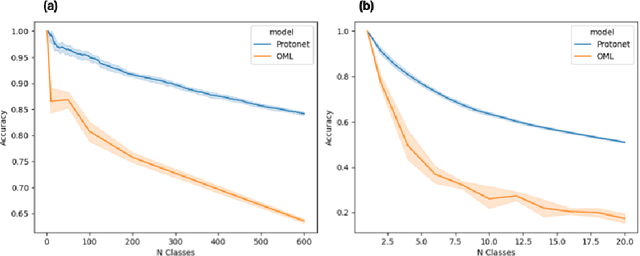
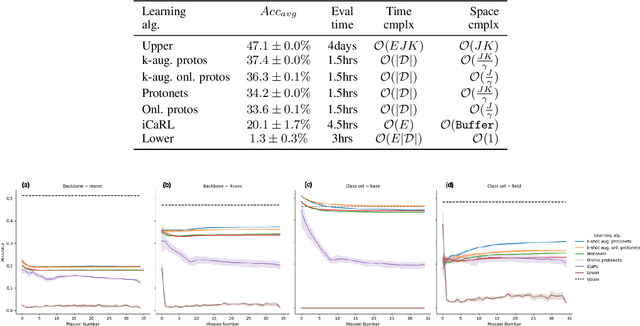
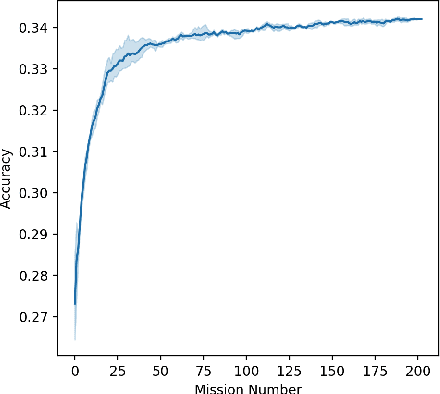
Abstract:We describe federated reconnaissance, a class of learning problems in which distributed clients learn new concepts independently and communicate that knowledge efficiently. In particular, we propose an evaluation framework and methodological baseline for a system in which each client is expected to learn a growing set of classes and communicate knowledge of those classes efficiently with other clients, such that, after knowledge merging, the clients should be able to accurately discriminate between classes in the superset of classes observed by the set of clients. We compare a range of learning algorithms for this problem and find that prototypical networks are a strong approach in that they are robust to catastrophic forgetting while incorporating new information efficiently. Furthermore, we show that the online averaging of prototype vectors is effective for client model merging and requires only a small amount of communication overhead, memory, and update time per class with no gradient-based learning or hyperparameter tuning. Additionally, to put our results in context, we find that a simple, prototypical network with four convolutional layers significantly outperforms complex, state of the art continual learning algorithms, increasing the accuracy by over 22% after learning 600 Omniglot classes and over 33% after learning 20 mini-ImageNet classes incrementally. These results have important implications for federated reconnaissance and continual learning more generally by demonstrating that communicating feature vectors is an efficient, robust, and effective means for distributed, continual learning.
Meta-Learning Initializations for Image Segmentation
Dec 13, 2019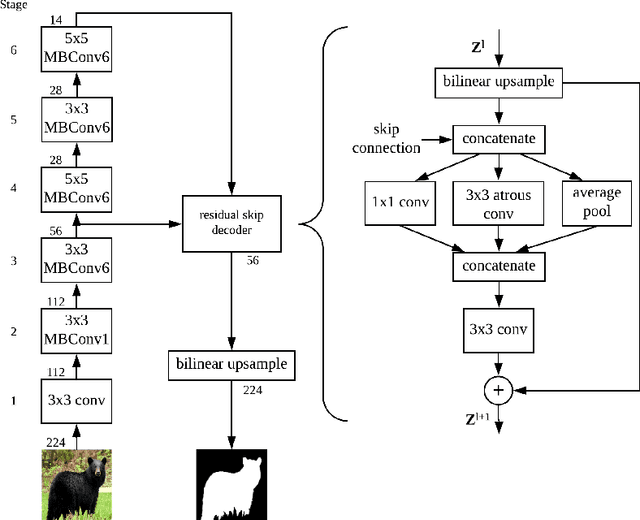


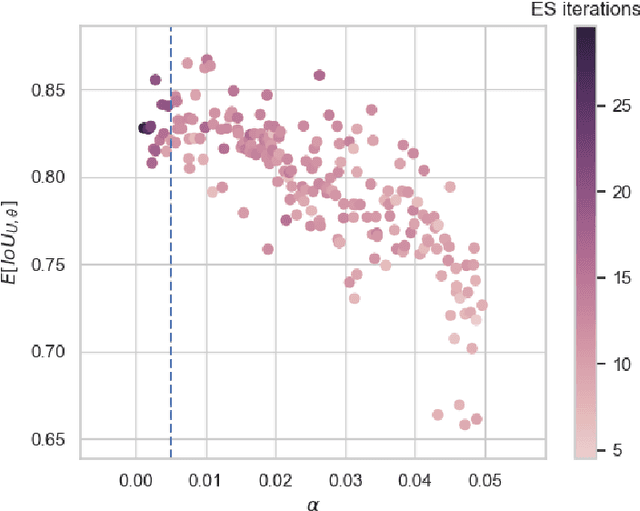
Abstract:While meta-learning approaches that utilize neural network representations have made progress in few-shot image classification, reinforcement learning, and, more recently, image semantic segmentation, the training algorithms and model architectures have become increasingly specialized to the few-shot domain. A natural question that arises is how to develop learning systems that scale from few-shot to many-shot settings while yielding competitive performance in both. One scalable potential approach that does not require ensembling many models nor the computational costs of relation networks, is to meta-learn an initialization. In this work, we study first-order meta-learning of initializations for deep neural networks that must produce dense, structured predictions given an arbitrary amount of training data for a new task. Our primary contributions include (1), an extension and experimental analysis of first-order model agnostic meta-learning algorithms (including FOMAML and Reptile) to image segmentation, (2) a novel neural network architecture built for parameter efficiency and fast learning which we call EfficientLab, (3) a formalization of the generalization error of meta-learning algorithms, which we leverage to decrease error on unseen tasks, and (4) a small benchmark dataset, FP-k, for the empirical study of how meta-learning systems perform in both few- and many-shot settings. We show that meta-learned initializations for image segmentation provide value for both canonical few-shot learning problems and larger datasets, outperforming ImageNet-trained initializations for up to 400 densely labeled examples. We find that our network, with an empirically estimated optimal update procedure, yields state of the art results on the FSS-1000 dataset while only requiring one forward pass through a single model at evaluation time.
 Add to Chrome
Add to Chrome Add to Firefox
Add to Firefox Add to Edge
Add to Edge